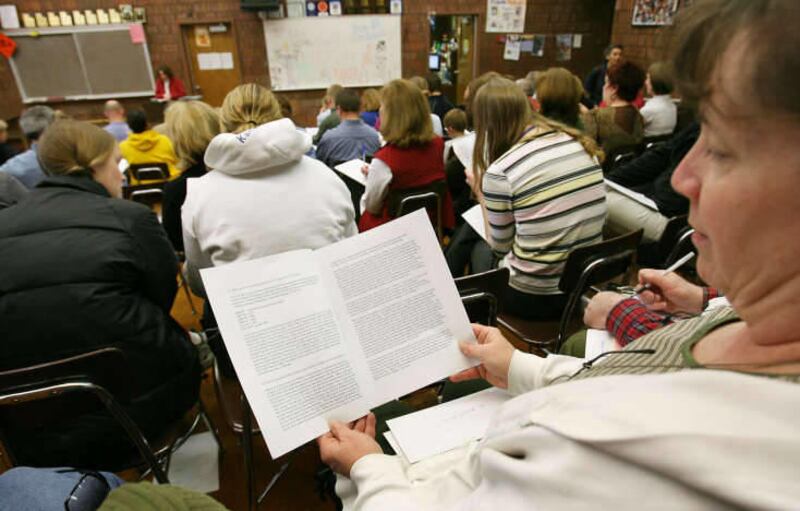We question if parents fully understand that they can have a direct impact on meeting their particular school's critical academic needs. – Legislative audit
SALT LAKE CITY — Information about school community councils and council elections is too often unclear and unavailable to the public, according to a legislative audit released Thursday.
Under state law, every public school (charters excluded) needs to have a school community council comprised of teachers and parents. Councils are tasked with creating school improvement plans to address academic needs and allocating funds from the interest and dividends of the School Land Trust program. Council members are elected by parents whose children attend the school, and can serve up to three two-year terms.
The audit commissioned by the Legislature found many schools weren't following election procedures and weren't posting public information about the councils on school websites. That's because, in part, most council candidates went uncontested, legislative auditors found. In a review of 52 schools, the audit found 62 percent didn't need to hold elections because every candidate was uncontested.
"We question if parents fully understand that they can have a direct impact on meeting their particular school's critical academic needs," the report from the Legislative Auditor General states. The audit found every school in the state receives between $25,000 to $41,000 on average that the councils are tasked with allocating.
Several principals surveyed said there was little to no interest from parents for council positions, and very few voted in the elections. The audit recommended schools more clearly state the influence parents can have by posting the dollar amount in Trust Land dollars the school receives on the school website.
The audit also found many schools had not posted contact information for their school community members on their websites. State law that went into effect in May 2011 requires council members' names, email addresses and phone numbers appear on the site.
"We are unsure why this information is not readily available, although it is currently required in statute," the audit states.
State Superintendent Larry Shumway wrote in response to the audit, "We strongly support schools and districts in being diligent about the various noticing requirements to parents and posting all of the information related to councils in a prominent place on school and district websites."
A statute related to a parent's ability to serve on a council if they hold an educator job in the district may also be unclear. A new law passed last session states teachers and other educators can't fill a "parent" slot on a council at their child's school even if they're employed at another school.
The audit recommends the Legislature take a closer look at that law, because it automatically disqualifies a large percentage of would-be council members. According to a State Office of Education survey, of 303 schools surveyed last April, before the law went into effect, 130 parent members of councils would no longer be able to serve in that position.
"One concern was that the restriction is unfair, punitive, and hard on educator parents in prohibiting them," the audit states. "One principal also stated that it is getting more and more complicated to be a part of (school community councils) every year and it is hard to get people involved."
The audit also found the statute to be unclear and potentially confusing for schools. For instance, principals don't know how long they're supposed to retain election results. It's also unclear whether they need to keep actual ballots or a simple tally of how many votes each candidate received.
Auditors also found the vast majority of schools sampled did not properly notify parents of community council elections. Out of 32 schools that sent notices prior to an election, only three notices included all the necessary elements of date, time and positions available.
"Although we found violations of the law governing (school community council) election practices, at this point we do not believe any of the violations warrant program funds being withheld," the audit states.
Shumway wrote in his response: "(The Utah State Office of Education) is committed to continuing our efforts to have every school understand the requirements so they can be in full compliance."
E-mail: mfarmer@desnews.com, Twitter: mollyfarmer


